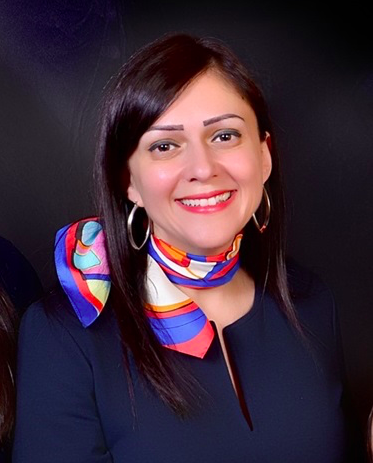Take Five: “Enhancing women’s economic situation would trigger a ripple effect”
Date:

Ghadeer Khuffash is a women’s rights activist with years of experience in education, vocational training and workforce development. She is now the CEO of Jordan Education for Employment (JEFE), a non-profit organization with a presence across the Middle East and North Africa that trains youth, places them in jobs in the private sector and provides micro-entrepreneurship training. JEFE is currently partnering with UN Women to improve the economic welfare of at least 1,000 refugee and Jordanian women by providing them with income-generating opportunities. The initiative is part of the regional programme “Strengthening the Resilience of Syrian Women and Girls and Host Communities in Iraq, Jordan and Turkey”—implemented by UN Women and the European Union under the Regional Trust Fund in Response to the Syrian Crisis (MADAD).
1. Women in Jordan, especially young women, are confronted with several challenges in accessing the job market. What’s behind this gap?
The main obstacles for women to access the labour market are rooted in culture. We all learned in school books (whether directly or indirectly) that a woman’s place is at home, raising kids and cooking for the males of the family. We also learned that working in a mixed gender environment is frowned upon. Another deterrent to women’s employment is the weak public transportation system and the lack of nurseries or child care options. There is also weak legislation when it comes to providing incentives for women to work. For example, social welfare laws are biased; for instance, if a woman dies, the husband doesn’t inherit any money.
2. Job security and retention are even more critical for women living in marginalized areas and in poverty. What strategies can be put in place to support them?
In order to increase the workplace retention rate among women, it would be important to build a provisional fund mechanism that is subject to the years of service, as well as to establish a clear incentives and career growth system for women who stay on the job.
3. What are the most in-demand and fast-growing job opportunities for women in Jordan?
That depends on the level of skills or education required for certain jobs. For university degree-holders, the fastest-growing job opportunities are in medicine, information and communications technology, and specific areas of the hospitality industry. For women without a university-degree, the garment industry is growing, as are jobs in service and hospitality (including housekeeping in hospitals and hotels).
4. What role can community-based organizations play in supporting young women job-seekers?
Community-based organizations can play a critical role in spurring women job-seekers; for example, by offering awareness-raising sessions on the importance of accessing the job market, to help undo the bias reinforcement young women get in schools. They also play an important advocacy role, by lobbying to change legislation. Furthermore, they can provide essential training for women (including on soft skills, English and vocational training).
5. Tell us about the UN Women and JEFE partnership, which will focus on empowering 1,000 women in Jordan. How will it work and what will it do?
In partnership with UN Women, JEFE will provide income-generating opportunities for at least 1,000 unemployed Jordanian and Syrian women from low socio-economic backgrounds in Tafileh, East Amman, Zarqa, Karak and Ma’an. We will seek to improve their economic welfare and boost the workforce participation of women in Jordan.
To achieve the desired change, we intend to simultaneously operate three different training programmes, namely: a Job Training and Placement Programme, Career Direction for university graduates, and a Micro-Entrepreneurship Programme. We understand our strategic objective (the improvement of economic opportunities for young women) as a crucial step towards achieving a broader long-term vision—which is the realization of sustainable, inclusive and equitable economic growth.
Our approach is based on the overarching assumption that enhancing women’s economic situation would trigger a ripple effect, whereby young women will eventually become real agents of change. This would have positive socio-economic impacts not only on themselves and their families but also on their societies.